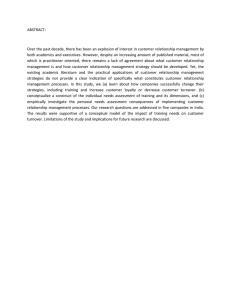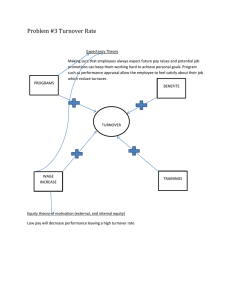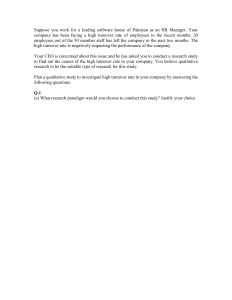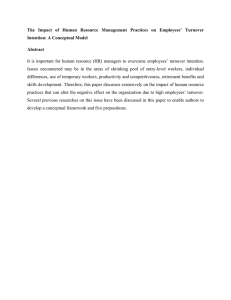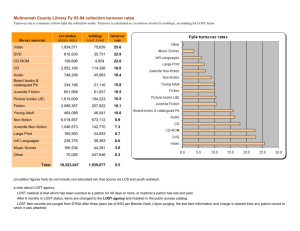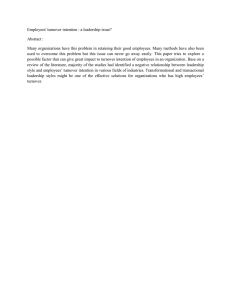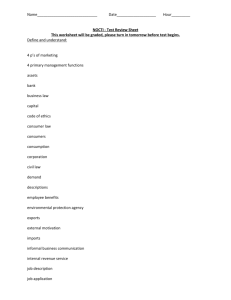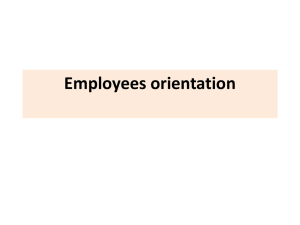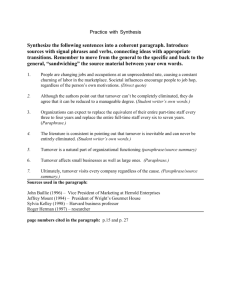Internal Brainstorming
advertisement
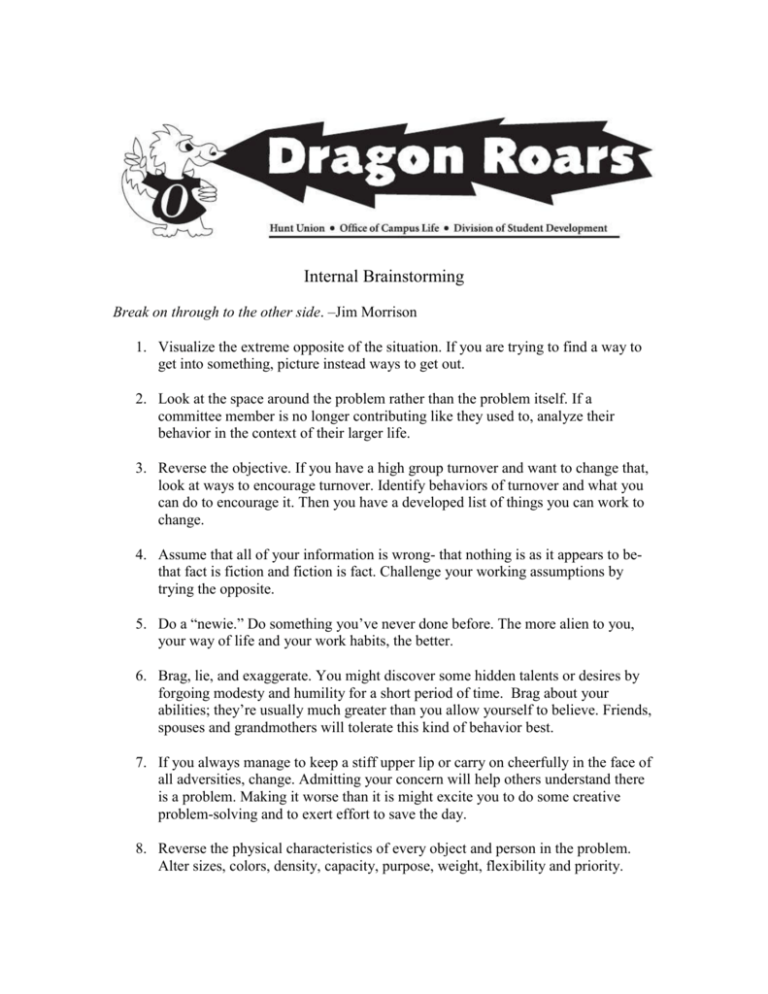
Internal Brainstorming Break on through to the other side. –Jim Morrison 1. Visualize the extreme opposite of the situation. If you are trying to find a way to get into something, picture instead ways to get out. 2. Look at the space around the problem rather than the problem itself. If a committee member is no longer contributing like they used to, analyze their behavior in the context of their larger life. 3. Reverse the objective. If you have a high group turnover and want to change that, look at ways to encourage turnover. Identify behaviors of turnover and what you can do to encourage it. Then you have a developed list of things you can work to change. 4. Assume that all of your information is wrong- that nothing is as it appears to bethat fact is fiction and fiction is fact. Challenge your working assumptions by trying the opposite. 5. Do a “newie.” Do something you’ve never done before. The more alien to you, your way of life and your work habits, the better. 6. Brag, lie, and exaggerate. You might discover some hidden talents or desires by forgoing modesty and humility for a short period of time. Brag about your abilities; they’re usually much greater than you allow yourself to believe. Friends, spouses and grandmothers will tolerate this kind of behavior best. 7. If you always manage to keep a stiff upper lip or carry on cheerfully in the face of all adversities, change. Admitting your concern will help others understand there is a problem. Making it worse than it is might excite you to do some creative problem-solving and to exert effort to save the day. 8. Reverse the physical characteristics of every object and person in the problem. Alter sizes, colors, density, capacity, purpose, weight, flexibility and priority. 9. Expect he unexpected. 10. Forget what you know. Approach everything as if you were seeing it for the first time. 11. Be someone else. Put yourself in another person’s hoes to gain a perspective on why they are as they are. Adapted from Whole Brain Thinking by Jacquelyn Wonder & Priscilla Donovan, pp. 102105.
